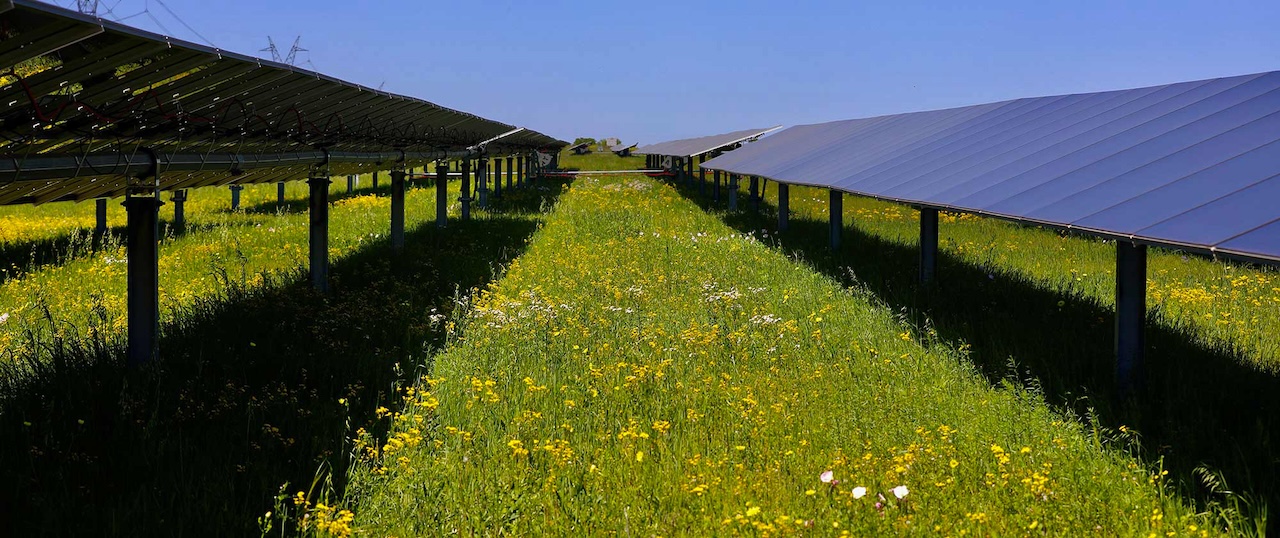How Is BMS Making Progress on Its Renewable Energy Goals?
Danielle Menture, BMS' vice president of sustainability, answers five questions about what the company is doing to meet its green energy goals.
NORTHAMPTON, MA / ACCESSWIRE / November 17, 2023 / Bristol Myers Squibb Company

Originally published on Bristol Myers Squibb News & Perspectives
This week, BMS announced a 15-year virtual power purchase agreement (VPPA) with National Grid Renewables for 145 megawatts (MW) of solar at the Texas-based Blevins Project. Combined with the 15-year VPPA with EDP Renewables secured in 2022, this move puts BMS another step closer to realizing its goal of 100% of purchased electricity from renewable sources by 2030.
To dig deeper, Danielle Menture, vice president of Environment, Occupational Health, Safety and Sustainability, answers five questions about how BMS is expanding its renewable energy use by investing in VPPAs.
What is a virtual power purchase agreement? How does it work?
Virtual power purchase agreements, or VPPAs, are longer-term contracts between a large-scale energy purchaser, like BMS, and a developer of a renewable energy project, like National Grid Renewables or EDP, who develop and operate renewable energy assets, including solar.
With a VPPA, BMS is supporting the creation of renewable electricity that is provided to the grid. The company receives what are called renewable energy credits or certificates (RECs) that demonstrate we've brought additionality, or new renewable energy generation to the grid.
This agreement is good for both parties: On the developer's side, it helps create local jobs and income for the community and provides cleaner energy for residents in the project area.
For BMS, it guarantees a fixed rate for electricity once the project is up and running, and it helps offset the direct environmental impact of BMS' operations. It also supports the creation of a more sustainable planet by increasing the amount of available renewable energy and helping to accelerate the transition to a clean-energy economy.
What are the expected economic and environmental impacts?
Our teams spend a lot of time evaluating the best solutions for BMS. VPPAs are a direct way to add renewable energy to the grid, while offsetting our own carbon footprint. Additionally, they have significant economic benefits to the communities where projects are located.
In total, the direct economic impact of this VPPA with National Grid is estimated to be approximately $35 million over the first 30 years of operation, and that includes job creation and tax revenue generation. It will add a total of 270 megawatts (MW) of solar power to the grid, and according to the Environmental Protection Agency, the project is expected to offset approximately 457,300 metric tons of carbon dioxide emissions annually, which is equivalent to taking around 101,700 cars off the road every year.
As for our agreement with EDP, that site adds 240 MW to the grid, and the total generation will be equivalent to the average consumption of more than 37,000 Texas homes1 , and an estimated $55 million in taxes will be paid to support local schools and community services.
How did you decide on the right VPPA?
It's important for us to ensure that the VPPAs we contract are in line with our business priorities. Throughout this process, we worked closely with experts at Edison Energy, who helped us identify and structure the right project to not only create a meaningful impact but also tie back to our environmental sustainability goals.
What type of renewable energy is best?
There isn't a "best" type of energy. The most popular renewable energies today are wind, geothermal, hydroelectricity, biomass and solar. Both of BMS' VPPAs invest in solar power. Solar power is a strong option for Texas, where our projects with National Grid and EDP are located, because of the abundance of consistent sunlight.
How will VPPAs help BMS achieve its renewable energy goals?
BMS made a commitment to get 100% of purchased electricity from renewable sources by 2030. I'm excited by the great strides we've made toward this goal, and our VPPA investments are an important part of that. We expect that once both projects start operations - EDP's Cattlemen Solar Park in December 2023 and National Grid's Blevins Project estimated in early 2026 - we will be well on track to hit our 2030 target.
To learn more about our latest VPPA agreement, read the press release here.
1. Power generation calculated using a 25% capacity factor; household consumption based on the 2020 EIA Household Data monthly average consumption by state.
About Bristol Myers Squibb
Bristol Myers Squibb is a global biopharmaceutical company whose mission is to discover, develop and deliver innovative medicines that help patients prevail over serious diseases. As global citizens, we work sustainably and responsibly to create a positive impact in the communities where we live and work.
Contact Info:
Spokesperson: Bristol Myers Squibb Company
Website: https://www.3blmedia.com/profiles/bristol-myers-squibb-company
Email: [email protected]
SOURCE: Bristol Myers Squibb Company
View source version on accesswire.com:
https://www.accesswire.com/806025/how-is-bms-making-progress-on-its-renewable-energy-goals